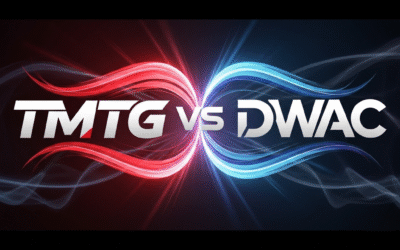‘Block Everything’ Protests: Over 100 Arrested in France

‘Block Everything’ Protests: Over 100 Arrested in France
A coordinated day of civil disobedience swept across France on Tuesday, as thousands participated in the so-called “‘block everything’ protests,” leading to widespread travel chaos and resulting in the arrest of over 100 individuals. Authorities have confirmed that major transport arteries in Paris, Lyon, and Marseille were brought to a standstill by demonstrators protesting the government’s controversial new “Eco-Solidarity” fuel levy.
The protests, organized primarily through encrypted messaging apps and social media, aimed to create maximum economic disruption to force the government to reconsider the policy. French Interior Minister Gérald Darmanin condemned the “unacceptable disruptions” while vowing a firm response to illegal blockades.
Understanding the ‘Block Everything’ Movement
The “‘block everything’ protests” are the latest manifestation of public anger against rising living costs, specifically targeting the new “Eco-Solidarity” levy set to increase taxes on petrol and diesel fuel. Proponents argue the tax is a necessary step towards meeting France’s climate goals, but critics say it unfairly burdens lower and middle-income households who rely on their vehicles for work and daily life.
Unlike traditional union-led demonstrations, this movement is characterized by its decentralized, leaderless structure. It draws parallels to the “Gilets Jaunes” (Yellow Vests) movement that began in 2018. Organizers use social media platforms to identify strategic locations like roundabouts, highway toll booths, and fuel depots to create bottlenecks that ripple through the national logistics network.
Their core strategy is simple: if the economy cannot function, the government will be forced to listen. This philosophy of total, albeit temporary, paralysis gives the movement its name and its potent ability to command national attention.
A Nationwide Day of Disruption
The action began in the early hours of Tuesday morning. In Paris, protesters blocked several key entry points on the Boulevard Périphérique, the critical ring road that encircles the capital. This caused immediate gridlock, with traffic jams stretching for dozens of kilometers and delivery services reporting significant delays. Similar scenes unfolded on the A7 motorway near Lyon, a vital corridor connecting northern France to the Mediterranean.
In the southern port city of Marseille, demonstrators targeted the access roads to the Fos-sur-Mer oil terminal, a major hub for fuel imports. Local media reported long lines of trucks unable to enter or exit the facility, raising concerns about potential fuel shortages if the blockades were to continue. For more background on the tax at the heart of the issue, see our previous coverage on understanding the new French fuel levy.
One protester in Lyon, who gave her name only as Sophie, told reporters, “We don’t want to be doing this. We have to go to work, too. But the government has left us with no choice. They do not listen to letters or peaceful marches. They only understand the language of money, so we are stopping the money.”
Government Response and Mass Arrests
The government’s reaction was swift and decisive. Throughout the day, thousands of Gendarmerie and CRS (riot police) were deployed to clear the blockades. In several locations, tensions escalated, leading to the use of tear gas and minor clashes between police and protesters. The most significant confrontations occurred on the outskirts of Paris, where demonstrators had set up makeshift barricades with tires and pallets.
By late afternoon, the Interior Ministry confirmed that 112 people had been arrested across the country. A spokesperson stated that the arrests were made on grounds including “obstruction of public thoroughfares,” “failure to disperse,” and “violence against a person holding public authority.”
Interior Minister Darmanin stated in a press conference, “The right to protest is a constitutional freedom, but the right to block the lives and livelihoods of millions of French citizens is not. We will show zero tolerance for those who engage in illegal and dangerous actions.” Further details on the official government position can be found on international news wires like Reuters, which are closely covering the events.
The heavy-handed response has drawn criticism from some opposition politicians, who accuse the government of inflaming the situation rather than engaging in dialogue about the underlying grievances driving the “‘block everything’ protests.”
Economic Impact and Public Reaction
The economic fallout from a single day of disruption is already being calculated. The French National Federation of Road Transport (FNTR) estimated that the blockades cost the logistics industry tens of millions of euros in lost time and fuel. Retail and business associations also reported significant disruptions to supply chains and employee commutes.
Public reaction remains deeply divided. Opinion polls conducted in the morning showed a near 50/50 split. While many citizens expressed frustration with the traffic jams and disruptions to their daily routines, a significant portion sympathized with the protesters’ anger over the new tax. “It’s a huge pain, I was two hours late for work,” said one Parisian commuter. “But do I understand why they’re doing it? Yes, I do. Everything is just getting too expensive.”
This division highlights the tightrope the government must walk. While it cannot be seen to capitulate to disruptive tactics, it also cannot ignore the widespread economic anxiety that fuels movements like the “‘block everything’ protests.”
Organizers have already taken to social media to label the arrested individuals as “political prisoners” and are calling for another day of action later in the week. The government, meanwhile, insists the eco-levy will go into effect as planned. As both sides dig in, France braces for a potentially prolonged period of social and political tension, with the nation’s motorways and city centers serving as the primary battleground.
“`









